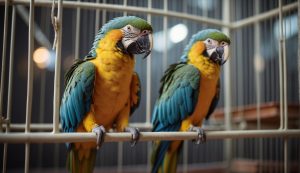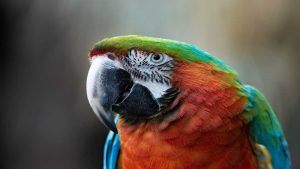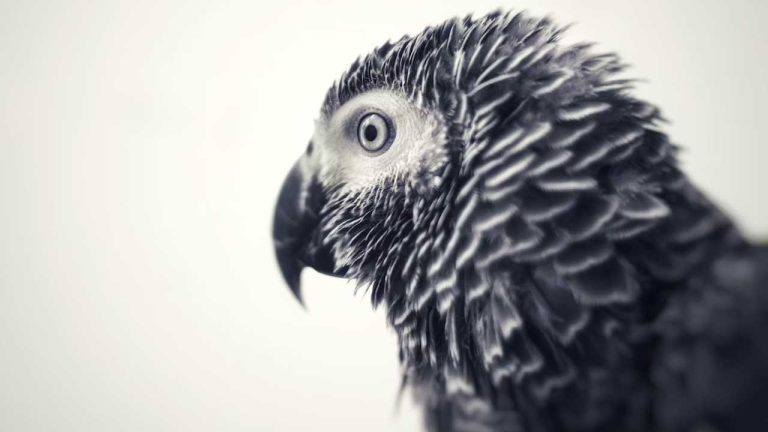Why Does My Parrot Make Crying Noises: Understanding the Reasons Behind This Behavior

If you’re a parrot owner, you may have noticed your feathered friend making crying noises. Parrots are known to vocalize their emotions, and crying noises are one way they express themselves. However, it’s important to understand what these crying noises mean to ensure your parrot is happy and healthy.
In Summary

One reason your parrot may be making crying noises is due to loneliness.
Parrots are highly social animals and require a lot of interaction with their owners or other birds.
If your parrot is not receiving enough attention, it may become depressed and make crying noises as a result.
Another reason your parrot may be crying is due to fear or worry. Parrots can be easily frightened by loud noises or unfamiliar people, causing them to vocalize their distress through crying noises.
Table of Contents
Understanding Parrot Crying Noises
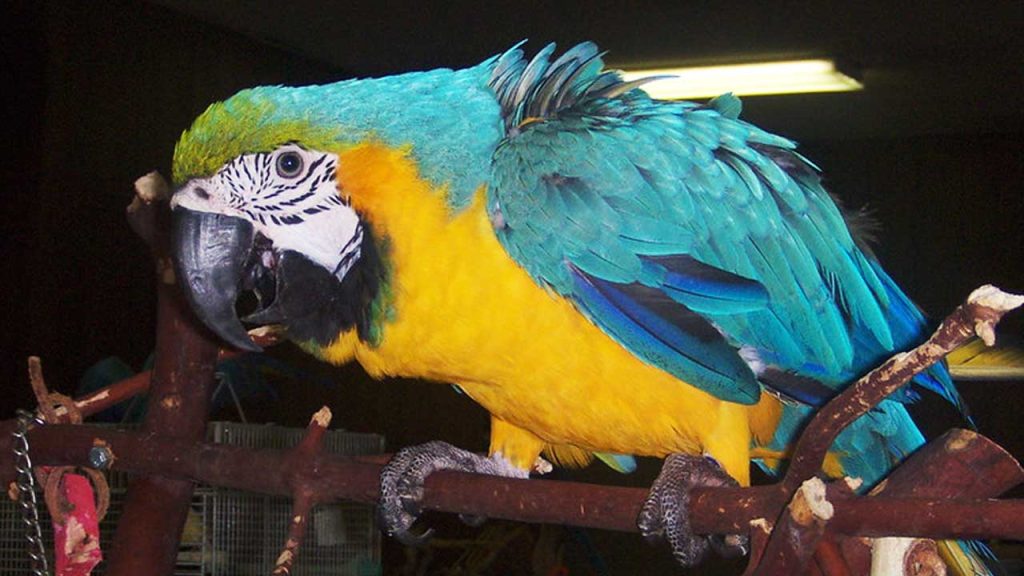
Parrots are known for their ability to communicate through a variety of sounds, including crying noises. As a parrot owner, it’s important to understand why your parrot might be making these noises and what they could mean.
Why Do Parrots Cry?
Parrots cry for a variety of reasons, including loneliness, fear, pain, and discomfort. They may also cry as a way to communicate with their owners or to express their emotions. For example, a parrot may cry when it’s feeling sad or anxious.
It’s important to note that crying noises in parrots are not the same as tears. Parrots don’t actually cry tears like humans do. Instead, they use vocalizations to express their emotions.
Types of Crying Noises in Parrots
There are several different types of crying noises that parrots can make. Some of the most common include:
- Screaming: Parrots may scream when they’re feeling scared or distressed. This can be a loud, high-pitched noise that’s meant to alert other birds to danger.
- Squawking: Squawking is another common crying noise in parrots. This can be a sign of aggression or fear, and may be accompanied by flapping wings or other aggressive behaviors.
- Screeching: Screeching is a loud, piercing noise that parrots may make when they’re feeling uncomfortable or in pain. This can be a sign of illness or injury, and should be taken seriously.
- Whistling: Parrots may also cry by whistling. This can be a sign that they’re feeling happy or content, and may be accompanied by other happy behaviors like dancing or playing.
Understanding the different types of crying noises in parrots can help you better understand your bird’s behaviors and emotions. If you’re unsure why your parrot is crying, it’s always best to consult with a veterinarian or an experienced parrot owner.
In conclusion, crying noises in parrots are a natural part of their communication and behavior. By understanding why your parrot is crying and what different crying noises mean, you can better care for your feathered friend and build a stronger bond with them.
Common Reasons for Parrots Making Crying Noises
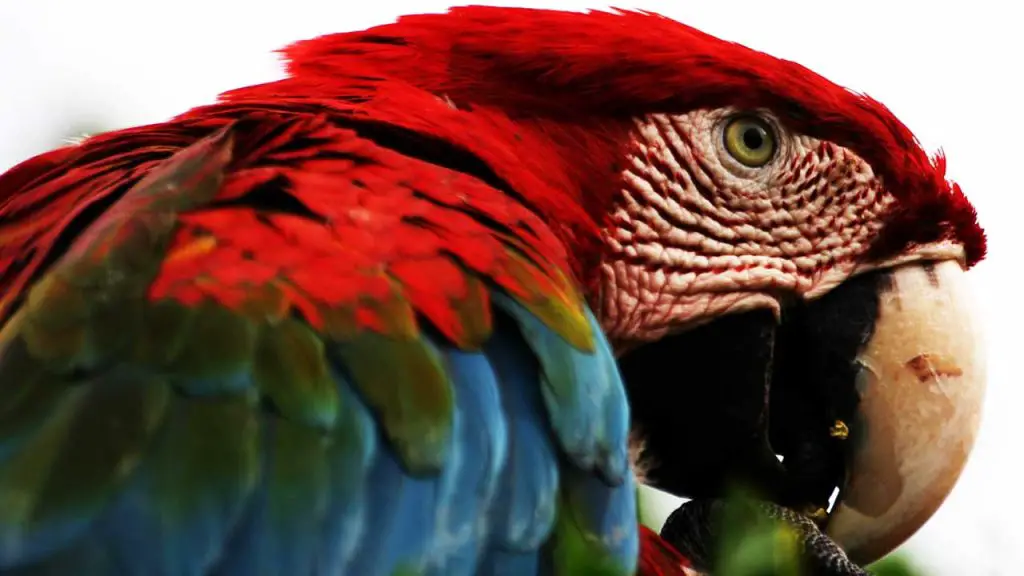
Parrots are known for their vocal abilities, and they use their voices to communicate with their owners and other birds. However, sometimes parrots make crying noises that can be alarming to their owners. In this section, we will explore the common reasons why parrots make crying noises.
Boredom and Lack of Attention
Parrots are social creatures that need mental and physical stimulation. If they are left alone for long periods without any interaction or playtime, they may become bored and start making crying noises to get attention. To prevent this, provide your parrot with plenty of toys, puzzles, and activities to keep them mentally stimulated and happy.
Loneliness and Sadness
Parrots are highly social creatures that thrive on companionship. If they feel lonely or sad, they may make crying noises to express their emotions. To prevent this, consider getting another bird as a companion for your parrot, or spend more time with them to provide the affection and bond they need.
Fear and Danger
Parrots are prey animals that are always on the lookout for predators. If they feel threatened or in danger, they may make crying noises to warn other birds or to alert their owners. To prevent this, create a safe and secure environment for your parrot, and be mindful of any potential dangers or threats.
Sickness and Pain
Parrots may make crying noises if they are sick or in pain. This can include loss of appetite, aggression, and difficulty moving. If you suspect your parrot is sick or injured, take them to a veterinarian for a check-up.
Environmental Factors
Parrots are sensitive to their environment, and changes in their surroundings can cause them to make crying noises. This can include poor living conditions, trauma, or the loss of a companion. To prevent this, provide your parrot with a comfortable and safe environment, and be mindful of any changes that may affect their well-being.
In conclusion, understanding the reasons why parrots make crying noises can help you provide the proper care and attention for your pet bird. By keeping them mentally stimulated, socially engaged, and physically healthy, you can prevent crying noises and ensure that your parrot is happy and healthy.
How to Address Parrot Crying Noises

If your parrot is crying, there are several things you can do to address the issue. Here are some steps you can take:
Veterinarian Consultation
The first step is to consult with a veterinarian to rule out any medical issues that may be causing your parrot to cry. Infections, foreign bodies, and other health issues can cause discomfort and distress in your parrot, which may lead to crying noises. Be sure to schedule regular check-ups with your vet to ensure your parrot’s health is in good condition.
Mental Stimulation and Enrichment
Parrots are intelligent animals that require mental stimulation and enrichment to prevent boredom and promote relaxation. Providing your parrot with toys, puzzles, and other forms of entertainment can help keep their minds active and prevent crying noises caused by boredom or stress. Additionally, offering your parrot a variety of foods and treats can provide mental stimulation and promote relaxation.
Positive Reinforcement
Positive reinforcement is an effective way to train your parrot to stop crying. When your parrot is quiet, offer them treats and praise to encourage good behavior. Over time, your parrot will learn that being quiet is rewarded, and they will be less likely to cry.
Bonding and Affection
Parrots are social animals that require bonding and affection to thrive in captivity. Spending time with your parrot, talking to them, and offering them affection can help reduce crying noises caused by loneliness or stress. Additionally, providing your parrot with a comfortable and spacious cage, and allowing them to spend time outside of their cage can also promote relaxation and reduce crying noises.
Addressing crying noises in your parrot requires patience, dedication, and a willingness to understand your parrot’s needs. By consulting with a veterinarian, providing mental stimulation and enrichment, offering positive reinforcement, and promoting bonding and affection, you can help your parrot feel more relaxed and content in captivity.
Conclusion
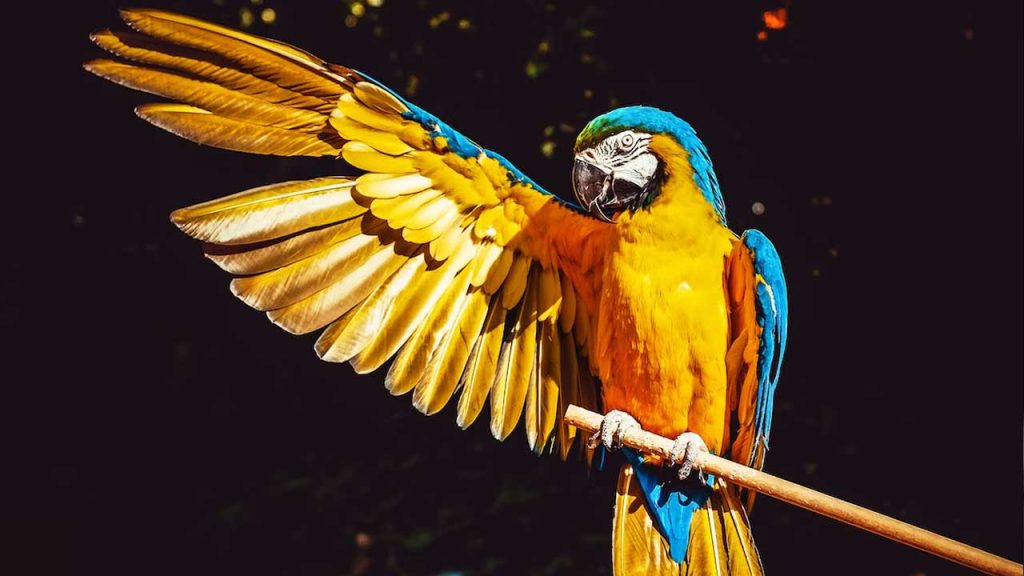
If your parrot is making crying noises, it could be a sign of a range of emotions, including sadness, fear, frustration, boredom, or loneliness. As a responsible pet owner, it’s important to understand your parrot’s behavior and provide them with the appropriate care and attention they need.
One of the reasons your parrot may be crying is due to loneliness. Parrots are social creatures and need companionship to thrive. If your parrot is alone for long periods, they may become sad and start crying. You can provide them with a companion or spend more time interacting with them yourself to help alleviate their loneliness.
Another reason your parrot may be crying is due to boredom. Parrots are intelligent animals and need mental stimulation to keep them happy. Providing your parrot with toys, puzzles, and other forms of enrichment can help keep them entertained and prevent them from crying out of boredom.
If your parrot is crying out of frustration, it could be due to being trapped in their cage or not having enough space to move around. Make sure your parrot has enough room to stretch their wings and fly around. You can also provide them with a play area outside of their cage to give them more space and freedom.
Illness or injury can also cause your parrot to cry. If you suspect your parrot is sick or injured, it’s important to take them to a veterinarian as soon as possible. Insects or other pests can also cause your parrot to cry out in distress, so make sure to keep their living area clean and free of pests.
In some cases, your parrot may be crying out of joy or contentment. They may bob their head, flap their wings, or make other noises to express their happiness. Pay attention to your parrot’s body language and vocalizations to better understand their emotions.
In conclusion, if your parrot is crying, it’s important to determine the underlying cause and take appropriate action. By providing your parrot with the care and attention they need, you can help prevent them from crying and ensure they lead a happy and healthy life.

